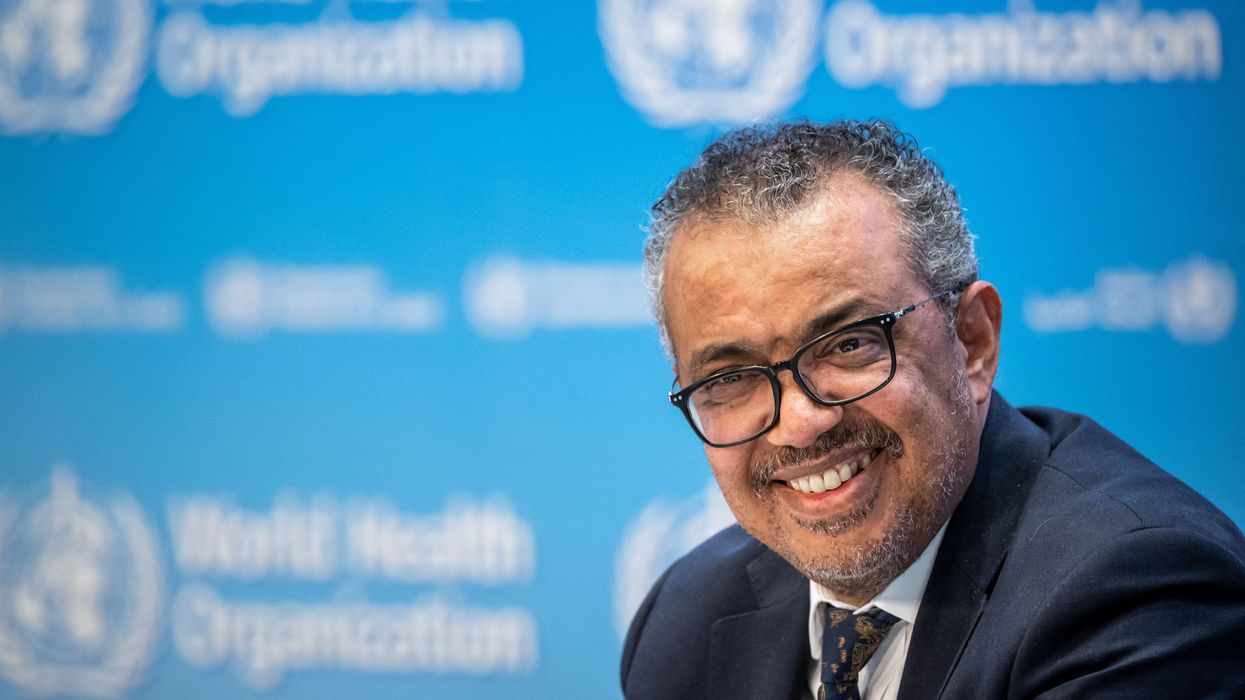"This draft marks a powerful recognition that pandemic response cannot succeed on charity, rather it requires global solidarity."
Kamal-Yanni was not alone. James Love, director of Knowledge Ecology International, said that the WHO pandemic treaty draft "is surprisingly strong on several topics."
Love pointed to the draft treaty's intellectual property provisions, which stipulate that in the event of a pandemic, parties "will take appropriate measures to support time-bound waivers of intellectual property rights that can accelerate or scale up manufacturing of pandemic-related products."
Among other things, the text also states that parties "shall encourage all holders of patents related to the production of pandemic-related products to waive, or manage as appropriate, payment of royalties by developing country manufacturers on the use, during the pandemic, of their technology for production of pandemic-related products, and shall require, as appropriate, those that have received public financing for the development of pandemic-related products to do so."
Dose hoarding by high-income nations and knowledge hoarding by pharmaceutical corporations whose Covid-19 vaccines, tests, and treatments owe their existence to billions of dollars in public funding has resulted in artificial scarcity, prolonging the pandemic while turning several executives into billionaires. According to the latest figures from Our World in Data, less than 27% of people in low-income countries have received a single jab to date, and similar inequalities have been observed with respect to therapeutics and diagnostics.
Policymakers from wealthy countries have refused to force profitable drugmakers like Pfizer and Moderna to relinquish their monopoly power over publicly funded technology even as the pandemic's global death toll soared to well over 15 million. The coronavirus continues to kill nearly 2,600 people around the world each day. Moreover, excess mortality—an estimate of the difference in the number of deaths that occur amid a crisis compared with what would have been expected under "normal" conditions—has been four times higher in poorer countries than rich ones throughout the pandemic.
The emerging pandemic treaty acknowledges this injustice, declaring that the document's creation began in December 2021 in response to "the catastrophic failure of the international community in showing solidarity and equity in response to the coronavirus disease."
Kamal-Yanni stressed Wednesday that the new WHO document "is a draft, not a final text."
"Governments need to demonstrate their commitment to a treaty based on equity and human rights" during negotiations, she said.
The WHO's Intergovernmental Negotiating Body (INB), which assembled the draft and will lead negotiations, is scheduled to meet next on February 27. It has until the WHO's 2024 World Health Assembly to finalize the pact.
Health Policy Watchreported that the draft "is unlikely to survive in its current form given the strong pharmaceutical lobby, particularly in the European Union," while Kamal-Yanni tweeted, "Now the real fight begins!"
James Cole, advocacy manager at STOPAIDS, echoed his colleagues.
"This draft marks a powerful recognition that pandemic response cannot succeed on charity, rather it requires global solidarity," Cole said in a statement. "With vaccines, tests, and treatments being delivered thanks to billions in public funding, it is welcome to see this text include support for intellectual property waivers, increased local production capacity, and conditions on public funding for research."
"The text is a strong first step to loosening the grip on intellectual property that Big Pharma companies have used to uphold monopolies and deny access to lifesaving health tools through the Covid pandemic," Cole continued. "By loosening this chokehold, the world will not have to fight the next pandemic with one hand behind its back."
"However," he warned, "language of 'promoting' and 'encouraging' manufacturers to enact the measures outlined lets industry off the hook and should be strengthened to ensure all stakeholders are committed to achieving an equitable pandemic response. Now, low- and middle-income member states must stand firm through negotiations and ensure that rich nations do not dilute the text in the interests of private profits."
"Low- and middle-income member states must stand firm through negotiations and ensure that rich nations do not dilute the text in the interests of private profits."
Kamal-Yanni, for her part, stated that "building manufacturing capacity in developing countries is critical to controlling pandemics, which will ultimately save lives everywhere."
Notably, the WHO has sought to facilitate knowledge sharing and ramp up local production capacity in low- and middle-income nations through its mRNA Vaccine Technology Transfer Hub.
The first consortium—based at Afrigen Biologics in Cape Town, South Africa—has successfully replicated the mRNA Covid-19 vaccine co-created by Moderna and the U.S. National Institutes of Health despite Big Pharma's best attempts to undermine their work.
As of last April, 15 manufacturers in developing countries have been named as "spokes," or recipients of mRNA technology and training from the Afrigen hub. In addition, the WHO has teamed up with South Korea to establish a global teaching facility that can share best practices.
Bolstering such efforts "will address the injustice of the Covid-19 and AIDS pandemics that saw people in lower-income countries forced to wait at the back of the line for vaccines, tests, and treatments," said Kamal-Yanni.
“To achieve this, we need more than just words," she continued. "Governments must commit to sharing medical technology and know-how. The intellectual property rules that uphold pharmaceutical company monopolies must be waived automatically when a health emergency is declared. And governments must place conditions to ensure that publicly funded innovations are available to manufacturers in the Global South."
"As negotiations over a pandemic treaty begin in earnest," Kamal-Yanni added, "governments must look to the greed, nationalism, and profiteering that characterized the world's response to Covid-19 and say: 'never again.'"

